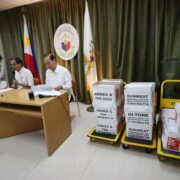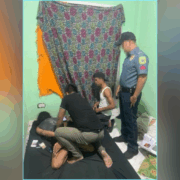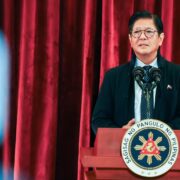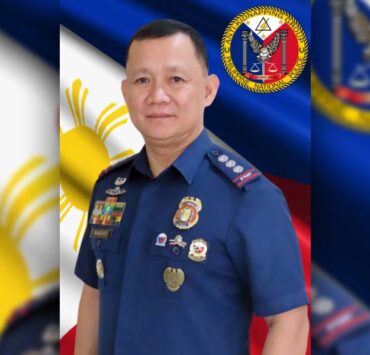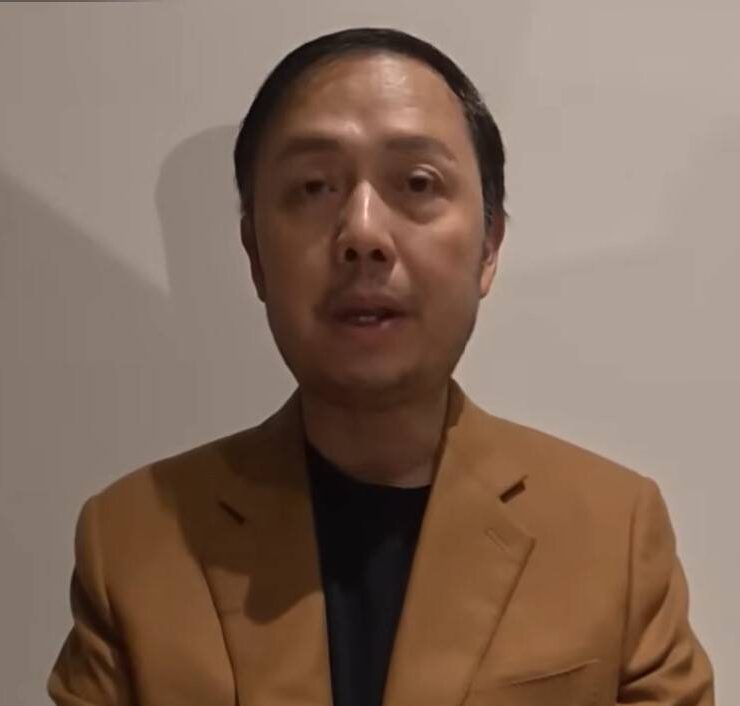ICC warrant legal, gov’t way of yielding Du30 ‘not’–Azcuna
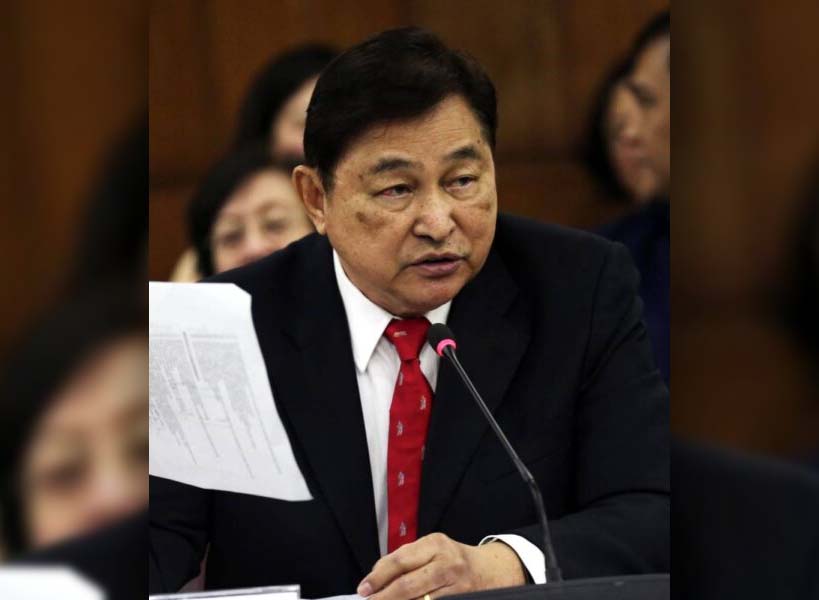
- The ICC warrant was legal, but the government’s manner of surrendering ex-president Rodrigo Duterte to The Hague was not, said retired SC Associate Justice Adolf Azcuna Jr. at a Senate hearing.
- Duterte, who was charged with crimes against humanity, was arrested on March 11 and flown later that night to the Netherlands, reaching The Hague on March 12.
- Azcuna said the violations allegedly committed by the government included “extrajudicial rendition” when Duterte was not presented to a local court before he was handed over to the ICC.
- But Azcuna said that the March 14 initial hearing where Duterte was first presented to the ICC Pre-Trial Chamber “was an attempt to cure the deficiency of the Article 59 procedure because the three judges in the hearing simply did what the local court would have done.”
A retired member of the Supreme Court believes the arrest warrant against former President Rodrigo Duterte issued by the International Criminal Court (ICC) was legal but the government allegedly violated local laws in the manner he was brought and surrendered to the tribunal in The Hague, the Netherlands.
In the end, however, it is the ICC, which has custody of Duterte, that will weigh the legality of his arrest and the seriousness of the charges against him, former Associate Justice Adolfo Azcuna told senators during a hearing on Thursday, raising doubts about the ex-president’s possible release from detention.
Duterte, who was charged with murder as a crime against humanity, was arrested on March 11 and flown later that night to the Netherlands, reaching The Hague on March 12.
Azcuna said the violations allegedly committed by the government included “extrajudicial rendition” when Duterte was not presented to a local court before he was handed over to the ICC.
Rome Statute requirement
“Therefore, in my view, the warrant of arrest is legal. However, I believe that the surrender is not,” he told the Senate foreign affairs committee headed by Sen. Imee Marcos, President Marcos’ elder sister.
Azcuna explained that the surrender of a Filipino suspect to the ICC required a treaty and that treaty was the Rome Statute establishing the ICC and from which the Philippines withdrew in 2019. But Section 17 of Republic Act No. 9851, which penalizes crimes against humanity, “brought back the Statute of Rome even after withdrawal,” Azcuna said.
He said that Article 59 of the Rome Statute required that the custodial state, which has custody of the suspect—in this case the Philippines—must first bring the arrested person before a local court to determine two things: whether the person was really the one named in the warrant and that the person had been informed of the charges.
Azcuna said Duterte was not brought before a Philippine court.
“Therefore, there was, in my view, a violation in the act of surrender,” he said.
Azcuna, however, said that the March 14 initial hearing where Duterte was first presented to the ICC Pre-Trial Chamber (PTC) “was an attempt to cure the deficiency of the Article 59 procedure because the three judges in the hearing simply did what the local court would have done.”
Justice Secretary Crispin Remulla said there was “no other option” but to surrender Duterte to the ICC.
He said there was no need for a court order since Duterte was turned over to the ICC, not extradited to The Hague.
“The extradition mentioned in the law is when the court or the state with the warrant files for extradition to the Philippines, so surrender is really our only option,” Remulla said when asked by Marcos why the government didn’t secure a court order before flying the former president out of the country.
“If we were still a member of the ICC, it would have helped President Duterte not to be flown to (The Hague), but it was him who withdrew the Philippines’ membership,” Remulla said.
Azcuna said the Philippines still had to cooperate with the ICC in implementing an arrest warrant because the country had “residual obligations” even after its withdrawal from the ICC in 2019.
‘Male captus bene detentus’
He was referring to Article 127 of the Rome Statute giving the ICC jurisdiction over crimes against humanity in the Philippines during the time it was still a state party to the treaty—from November 2011 to March 2019. This was affirmed by the Supreme Court.
Azcuna said criminal proceedings in the ICC are governed by its own procedures.
“In the ICC, I believe they follow what is called ‘male captus bene detentus,’ meaning that even if the arrest is illegal, the detention can be legal. It does not automatically mean that if the arrest is illegal the person arrested must be released,” Azcuna said.
“It’s a balancing act. They will balance the legality of the arrest with the need to prosecute someone for very serious offenses under international law. And in their view the balance weighs in favor of prosecution. They will prosecute, notwithstanding the violation of the procedure in the … surrender,” he added.
But in the Philippines, the alleged violation of procedure will be scrutinized by the Supreme Court.
“In my view, there is a violation and there will be consequences for that violation,” Azcuna added.
The senators noted that the red diffusion notice from the International Criminal Police Organization (Interpol) indicated that Duterte should be located and arrested “with the view to extradition.”
“A treaty between the ICC and the Philippines was needed to have an extradition, but there was no longer a treaty since we withdrew from the ICC,” Remulla said in response.
But Senator Marcos said the Philippines had no obligation to surrender Duterte to the ICC.
Obligation to humanity
“This obligation is to the rest of humanity,” Remulla retorted, saying the government followed international humanitarian law in Section 17 of RA 9851, which allows the government to surrender a suspect to an “appropriate” international court.
At a press briefing after the plane that carried Duterte left Philippine air space close to midnight on March 11, the President said the government arrested his predecessor as a commitment to Interpol, not as an obligation to the ICC.
Remulla accused the senators of bullying and forcing officials at the hearing “to admit something they will not admit.”
Senators Marcos and Ronald “Bato” dela Rosa went from one official to another, insistent on finding out who among the government officials ordered Duterte’s arrest and turn him over to the ICC
Dela Rosa’s temper flared when Philippine National Police chief Gen. Rommel Marbil invoked executive privilege in refusing to reply.
The Senate panel cited Special Envoy on Transnational Crime Markus Lacanilao in contempt for alleged lying to the senators in saying that he did not know if Duterte was brought before a “competent court” on the day he was arrested.
“You were there the whole time … [you] did not know? So, you’re lying,” the senator said.
Senate President Francis “Chiz” Escudero refused to sign the contempt citation and ordered Lacanilao’s release.
“This isn’t just disappointing. It’s dangerous,” Marcos said in protest.


